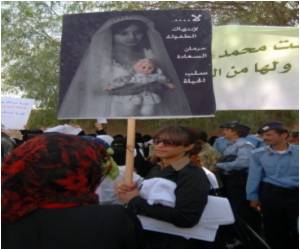Researchers report that countries in which girls are commonly married before the age of 18 have significantly higher rates of maternal and infant mortality.

"Our analyses accounted for development indicators and world region, and still documented that nations with higher rates of girl child marriage are significantly more likely to contend with higher rates of maternal and infant mortality and non-utilization of maternal health services," said Raj.
"Though child marriage is not highly common in the United States," said Raj, "these findings are meaningful because they hold true for adolescent pregnancy, regardless of marriage. Young age at childbirth increases risk for both maternal and infant mortality."
Girl child marriage is defined as the marriage of girls age 17 and younger. Although the practice has generally declined in recent years, it remains relatively common in regions like South Asia and sub-Saharan Africa, where up to 70 percent of females in some countries are married as minors. Worldwide, the United Nations estimates more than 60 million women and girls are affected, and considers girl child marriage to be a health and human rights violation.
Raj and Boehmer said certain social contexts increase the likelihood of child marriage, among them rural and impoverished areas with low access to health care and girl education. Regional conflict and instability tend to worsen the situation.
"Girl marriage is viewed as a means of protection from both economic instability and rape due to perceptions of sexual availability of unmarried girls and women," said Raj. "Poverty and conflict can exacerbate parents' desire to have their girl married at a younger age."
The new study builds upon earlier findings. Raj and Boehmer compared maternal and child health indicators and HIV prevalence with girl child marriage rates for 97 nations in which relevant data was available. They found strong associations between high child marriage rates and poor health indicators, but no evidence of higher child bride-higher HIV prevalence. The HIV finding, said the researchers, may be the result of a lack of evidence, underscoring the complexity of HIV and its effects in diverse societies.
"Currently, many nations, such as Yemen and Saudi Arabia, are considering whether or not to alter policies allowing marriage of minor-aged girls, while other nations like India and Nepal are struggling with enforcement of existing policies," Raj said. "These findings suggest policy and programmatic work to restrict and eliminate the practice of child marriage may be effective in improving national levels of maternal and child health."
Source-Eurekalert
 MEDINDIA
MEDINDIA




 Email
Email








